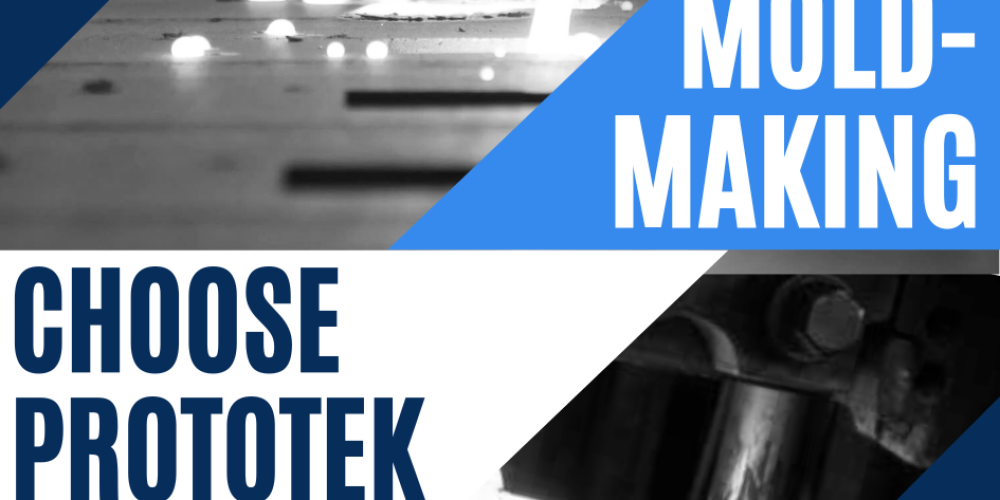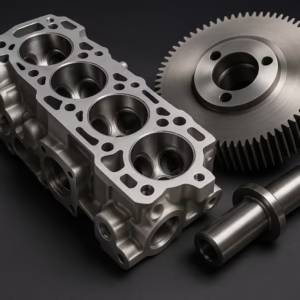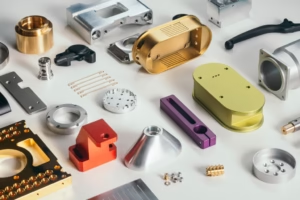Blog Detayları
Understanding Mold Making Services: From Prototyping to Mass Production
In various industries, producing high-quality parts and products often relies on efficient and precise mold making services. These services translate designs into tangible objects, facilitate prototyping, and enable mass production. This article delves into the fundamentals of mold-making services, exploring their processes and benefits and explaining how to choose the right service provider.
Basics of Mold Making
Understanding Molds
Molds are essential tools used in manufacturing to shape raw materials into desired forms. They are the negative space into which materials like plastics, metals, or ceramics are poured or injected, creating finished products. Molds come in various shapes and sizes, ranging from simple one-part molds for basic shapes to complex multi-part molds for intricate designs.
The Mold-Making Process
The process of mold-making typically involves several distinct stages:
1. Design
The design phase is where the specifications and requirements for the mold are established. This includes determining the desired product’s shape, size, and features and selecting the appropriate materials for the mold itself. Modern design tools, such as computer-aided design (CAD) software, are often utilized in this stage to create precise blueprints of the mold.
2. Manufacturing
Once the design is finalized, the actual manufacturing of the mold begins. Manufacturing techniques may vary depending on factors like the complexity of the design and the chosen materials. Common methods include machining, casting, and additive manufacturing (e.g., 3D printing). Skilled craftsmen or advanced machinery are employed to transform raw materials into finished mold components.
3. Testing
After manufacturing the mold components, they undergo rigorous testing to ensure they meet the specified criteria. Testing may involve verifying dimensional accuracy, assessing material compatibility, and conducting trial runs to simulate real-world production conditions. Any issues or discrepancies discovered during testing are addressed through modifications or adjustments to the mold design or manufacturing process.
4. Revision
Based on the results of testing, revisions to the mold design or manufacturing process may be necessary to address any identified issues or optimize performance. This iterative process continues until the mold meets the desired quality, functionality, and reliability standards.
Importance of Precision and Accuracy
Precision and accuracy are paramount in mold making. Even minor deviations from the intended specifications can result in defective parts or products, leading to waste, rework, and increased production costs. Therefore, meticulous attention to detail and adherence to tight tolerances are critical throughout the mold-making process to ensure consistent, high-quality results.
Materials Used in Mold Making
The choice of materials for mold making depends on various factors, including the type of product being manufactured, the production volume, and the desired characteristics of the finished mold. Common materials used in mold making include:
- Metals (e.g., aluminum, steel) for durable, long-lasting molds suitable for high-volume production.
- Plastics (e.g., epoxy, silicone) are used for cost-effective, flexible molds that are ideal for prototyping and low-volume production.
- Composites (e.g., fiberglass, carbon fiber) for lightweight, high-strength molds capable of withstanding demanding manufacturing environments.
Each material offers unique advantages and considerations in terms of strength, durability, thermal conductivity, and moldability, which must be carefully evaluated to determine the most suitable option for a given application.
Types of Mold-Making Services
Prototyping Mold-Making Services
Prototyping molds plays a crucial role in the product development process by enabling the creation of initial versions of a product for testing, validation, and refinement. These molds are designed to produce prototypes quickly and cost-effectively, allowing designers and engineers to iterate on designs and make necessary modifications before proceeding to mass production.
Process and Technologies
Prototyping molds employ various advanced manufacturing technologies to rapidly create prototypes with precision and accuracy. Some common techniques include:
- 3D Printing: Additive manufacturing processes such as stereolithography (SLA), selective laser sintering (SLS), and fused deposition modeling (FDM) are widely used for producing prototype molds directly from digital designs. 3D printing offers fast turnaround times and the ability to create complex geometries with minimal tooling costs.
- CNC Machining: Computer numerical control (CNC) machining utilizes computer-controlled cutting tools to remove material from a solid block or billet, resulting in highly accurate prototype molds. CNC machining is suitable for producing prototypes from a wide range of materials, including metals, plastics, and composites.
- Silicone Molding: Silicone molding, also known as rapid tooling or soft tooling, involves creating a silicone mold directly from a master pattern or 3D-printed model. This flexible and cost-effective method allows for producing small-batch prototypes with intricate details and fine surface finishes.
Mass Production Mold-Making Services
Mass production molds are designed for high-volume manufacturing, allowing businesses to replicate products consistently and efficiently on a large scale. These molds are engineered to withstand continuous production demands while maintaining tight tolerances and dimensional accuracy.
Characteristics
Mass-production molds are characterized by their durability, precision, and suitability for high-volume production. Key features of mass-production molds include:
- Durability: Mass-production molds are typically constructed from robust materials such as hardened steel or aluminum to withstand the rigors of prolonged use and repeated molding cycles without experiencing excessive wear or degradation.
- Precision: Mass production molds are engineered with precision-machined cavities and cores to ensure uniformity and consistency in the molded parts. Tight tolerances are maintained to meet the strict quality standards required for mass-produced components.
- High-Volume Capability: Mass production molds are optimized for rapid cycle times and efficient material utilization, allowing for producing large quantities of parts within a short timeframe. This scalability makes them ideal for industries with high demand and production volumes.
Process and Technologies
Mass production molds leverage advanced manufacturing processes and technologies to achieve high productivity and cost efficiency. Some commonly used techniques include:
- Injection Molding: Injection molding is a versatile manufacturing process that involves injecting molten material (such as plastic resin) into a mold cavity under high pressure. This process allows for the rapid production of large quantities of complex parts with consistent quality and precise details.
- Die Casting: Die casting is a metal casting process that involves forcing molten metal into a reusable steel mold (called a die) under high pressure. Die casting is well-suited for producing intricate metal parts with excellent surface finish and dimensional accuracy, making it ideal for mass-production applications.
- Stamping: Stamping is a manufacturing process that involves shaping metal sheets or strips using a press and dies to create complex geometries. Stamping is commonly used for producing high-volume components with uniform thickness and tight tolerances, such as automotive parts, electronic enclosures, and appliance panels.
Prototyping and mass production mold making services are essential components of the product development and manufacturing process, enabling businesses to bring their innovative ideas to market efficiently and cost-effectively. Whether creating prototypes for testing and validation or producing large quantities of parts for commercial distribution, the right mold-making services can make all the difference in achieving success in today’s competitive marketplace. By understanding the different types of mold-making services available and their respective processes and technologies, businesses can make informed decisions and leverage the most suitable solutions to meet their specific needs and requirements.
Advantages of Mold-Making Services
Mold-making services offer a range of benefits to businesses across various industries, facilitating efficient and cost-effective production processes. Understanding these advantages is essential for companies looking to streamline their manufacturing operations and gain a competitive edge in the market.
Cost Efficiency
One of the primary advantages of mold-making services is their ability to reduce production costs significantly, particularly for high-volume manufacturing. By investing in molds tailored to their specific product designs, businesses can achieve economies of scale and lower per-unit production costs over time. Additionally, mold-making allows for the efficient use of materials, minimizing waste and maximizing resource utilization. While the initial investment in mold creation may be substantial, the long-term cost savings and improved profitability make it a worthwhile investment for businesses focused on sustainable growth.
Production Efficiency
Mold-making services are vital in enhancing production efficiency by streamlining the manufacturing process and reducing cycle times. With custom molds designed to meet exact specifications, businesses can achieve consistent and repeatable results, minimizing errors and rework. Moreover, molds enable automated production processes, further increasing efficiency and productivity. By eliminating manual labor and human error, mold making services enable companies to meet production targets more efficiently and meet customer demand with greater agility. Additionally, the ability to produce large quantities of parts quickly and reliably allows businesses to capitalize on market opportunities and stay ahead of competitors.
Customization
Another significant advantage of mold making services is the ability to create custom-designed parts and products tailored to specific customer requirements. With custom molds, businesses can produce components with unique shapes, sizes, and features that meet the diverse needs of their target market. Whether it’s intricate details, complex geometries, or specialized materials, mold making services offer unparalleled flexibility and versatility in product design and development. This customization capability allows businesses to differentiate themselves from competitors, attract niche markets, and build strong customer loyalty. Additionally, the ability to rapidly prototype and iterate on designs using mold making services enables companies to bring innovative products to market faster, gaining a competitive advantage in dynamic industries.
Quality Assurance
Mold-making services are essential for maintaining high product quality and consistency throughout manufacturing. By using precision-engineered molds, businesses can ensure that each part meets stringent quality standards and specifications. Tight tolerances and dimensional accuracy are achievable with mold making, resulting in products that perform reliably and meet customer expectations. Furthermore, mold making services enable thorough testing and validation of prototypes before mass production, identifying and addressing any potential issues early in the design process. This proactive approach to quality assurance helps minimize defects, reduce warranty claims, and enhance overall customer satisfaction. With mold making services, businesses can uphold their reputation for excellence and establish themselves as trusted providers of high-quality products in the market.
Choosing a Mold-Making Service Provider
Selecting the right mold making service provider is a critical decision that can significantly impact the success of your product development and manufacturing initiatives. To ensure that your project is executed smoothly and efficiently, evaluating potential service providers carefully based on several key factors is essential.
Assessing Needs
Before choosing a mold making service provider, take the time to assess your specific requirements and objectives. Consider factors such as:
- Design Complexity: Determine the complexity of your product designs and whether they require specialized molding techniques or materials.
- Production Volume: Estimate the anticipated production volume to ensure that the selected provider can accommodate your capacity needs.
- Budget: Establish a budget for mold-making services and inquire about pricing structures, including upfront costs, tooling fees, and ongoing expenses.
- Timeline: Define your project timeline and delivery expectations to ensure the chosen provider meets your deadlines.
By clearly defining your needs and expectations upfront, you can narrow down your options and focus on selecting a provider that aligns with your specific requirements.
Technical Capabilities
When evaluating mold-making service providers, assessing their technical capabilities and expertise in mold design, manufacturing processes, and materials is essential. Consider the following factors:
- Experience: Look for providers with a proven track record of success in delivering high-quality molds for similar projects in your industry.
- Technological Expertise: Evaluate the provider’s proficiency in utilizing advanced manufacturing technologies and techniques, such as CNC machining, 3D printing, and injection molding.
- Material Selection: Verify that the provider offers a wide range of material options to accommodate your product specifications and performance requirements.
- Quality Control Measures: Inquire about the provider’s quality assurance protocols and certifications to ensure that molds meet industry standards and regulatory requirements.
Choosing a mold making service provider with the right technical capabilities ensures that your project is executed with precision, efficiency, and reliability.
Communication and Collaboration
Effective communication and collaboration are essential for a successful partnership with a mold-making service provider. Consider the following factors:
- Accessibility: Choose a provider that maintains open lines of communication and is responsive to your inquiries, concerns, and feedback throughout the project lifecycle.
- Transparency: Look for providers that offer transparent pricing, clear project timelines, and regular progress updates to keep you informed and engaged in the process.
- Collaborative Approach: Select a provider that values collaboration and actively involves you in decision-making, from design iterations to final approval.
By fostering a collaborative relationship with your mold-making service provider, you can ensure that your project stays on track and meets your expectations at every stage.
Reputation and References
Before finalizing your decision, research the reputation and credibility of potential mold-making service providers. Consider the following factors:
- Customer Reviews: Seek out reviews and testimonials from previous clients to gauge their satisfaction with the provider’s services, quality, and customer support.
- References: Request references from the provider and contact past clients to gain insights into their experiences and outcomes.
- Industry Recognition: Look for providers with industry certifications, awards, or affiliations demonstrating their commitment to excellence and professionalism.
Choosing a mold-making service provider with a solid reputation and positive references provides added assurance that your project will be handled with care and expertise.
Mold-making services are indispensable in modern manufacturing, offering cost-effective solutions, enhancing production efficiency, and enabling product customization. By understanding the basics of mold making and selecting the right service provider, businesses can effectively streamline their production processes and achieve their product development goals.
Closing Thoughts
Please contact us for further inquiries or to explore mold-making services tailored to your needs. Prototek is here to help you bring your designs to life efficiently and reliably.
If you have any needs, contact us via email at Lynnyao@prototekparts.com veya telefon edin: +86-0792-86372550
Etiketler:
- mold making service

























































